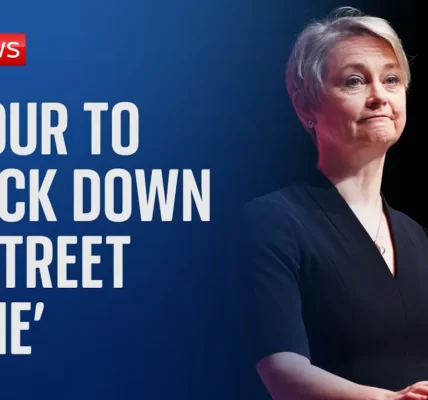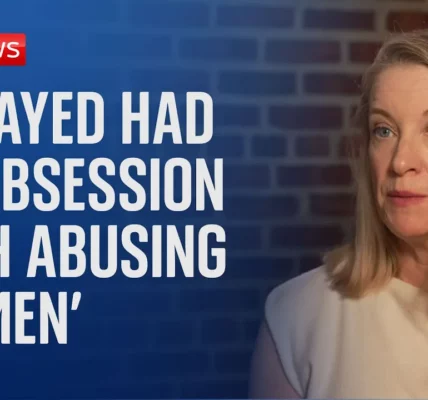Exploring the Impact of Potential Smoking Bans in Pubs

In this article, we delve into the ongoing discussions surrounding the proposed smoking bans in pubs, particularly focusing on the cultural, health, and economic implications of such policies. Join us as we uncover insights from Westminster, where history and politics converge over a pint.
Introduction to the Discussion
On a bustling Thursday afternoon in Westminster, Liz Bates stands outside the iconic Red Lion pub, not just to enjoy a drink but to engage in significant conversations about public health and policy. This historic pub, located directly across from Number 10 Downing Street, serves as a backdrop for discussions that have shaped political history in the UK. The potential extension of smoking bans, which could affect not only indoor spaces but also outdoor areas such as pub gardens, has become a hot topic in light of recent announcements. This article explores the implications of these proposed bans, drawing on expert opinions and historical context.
The Historical Context of Smoking in Pubs
Smoking has long been a part of pub culture in the UK, with many patrons enjoying a cigarette alongside their drinks. However, the landscape has changed significantly since the introduction of the smoking ban in pubs and restaurants in 2007. This legislation aimed to protect non-smokers from the dangers of passive smoking and has led to a cultural shift in attitudes towards smoking in public spaces.
Key Historical Events
- 2007 – The introduction of the smoking ban in public spaces across the UK.
- Significant pushback from sectors within the hospitality industry arguing that it would harm business.
- Changes in public perception, with many now enjoying smoke-free environments.
John Craig, a seasoned journalist, reflects on his experiences at the Red Lion, highlighting that significant political briefings and decisions have taken place within these walls. The pub has been a witness to pivotal moments in UK political history, such as discussions regarding the UK’s entry into the Euro under Tony Blair’s government.
Current Discussions on Smoking Bans
Recently, a report in the Sun newspaper has reignited discussions about the potential for smoking bans to be extended to outdoor areas such as pub gardens. This proposed legislation comes in light of ongoing health concerns linked to smoking, which remains a leading cause of preventable death in the UK.
The Health Implications
Prime Minister Rishi Sunak has hinted at the government’s intention to tackle smoking-related health issues more aggressively. With an estimated 880,000 deaths in the UK attributed to smoking, the government is faced with a pressing public health challenge.
Public Reactions and Concerns
Reactions to the potential ban have been mixed:
- Supporters argue it will protect public health and reduce smoking prevalence.
- Opponents, primarily from the hospitality sector, fear it could drive customers away and further hurt their businesses.
Kate Nicholls, CEO of UKHospitality, expressed concern that such regulations could severely impact businesses already struggling with the aftermath of COVID-19 and rising operational costs. The hospitality industry has been adapting since the first smoking ban, investing in outdoor smoking areas to accommodate patrons.
Behavioral Impacts of Smoking Bans
Research indicates that smoking bans can significantly alter smoking behaviors, particularly among social smokers. Dr. Lila McKay from the NHS Confederation explains that creating environments where smoking is less accessible can lead to reduced smoking rates across the board. This shift is crucial for the long-term goal of a smoke-free Britain.
Evidence from Past Bans
- Initial resistance from the public and industry.
- Improved air quality and reduced passive smoking incidents.
- Long-term cultural shifts leading to fewer smokers and a decline in smoking-related health issues.
Dr. McKay emphasizes that while the ban may initially seem restrictive, it aims to foster a healthier society and reduce the burden on the NHS, which currently spends billions annually on smoking-related healthcare costs.
Conclusion: The Future of Smoking in Public Spaces
As discussions continue regarding the potential expansion of smoking bans to include outdoor areas, it is clear that the implications are far-reaching. The balance between public health and the interests of the hospitality industry must be carefully navigated. The goal of achieving a smoke-free society is a shared ambition, but it requires thoughtful consideration of the economic impacts and public sentiment.
As we move forward, it is vital for the government to engage with the hospitality sector to ensure that new regulations are implemented in a way that supports businesses while prioritizing public health. The conversation around smoking bans is ongoing, and as more details emerge, the public will continue to weigh in on what kind of society they wish to create.
For more insights on public health policies and their impact on society, check out our related articles on Public Health Policies and Challenges Facing the Hospitality Industry.
“`




